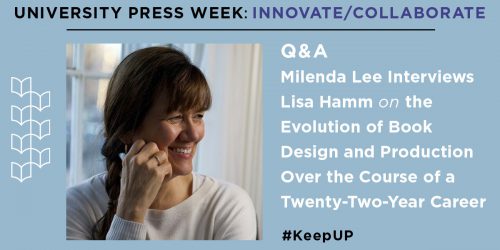University Press Roundup

Welcome to our weekly roundup of the best articles from the blogs of academic publishers! As always, if you particularly enjoy something or think that we missed an important post, please let us know in the comments. (And look back at our University Press Roundup Manifesto to see why we do this post every Friday.)
Several university presses pulled together posts and resources to celebrate Earth Week, as well as looking forward to Saturday’s global March for Science. The University of California Press blog ran a series of posts on topics including the future of America’s public lands, the abstract paradoxes of environmentalism, and the establishment of the Sierra Club. The Cambridge University Press blog featured a data-laden post by Timothy H. Dixon, professor of geosciences at the University of Florida, on the challenges and potential for change which are provoked by global overpopulation. The Duke University Press produced another post in its #ReadtoRespond series, compiling essential readings in environmental issues and activism.
Other anniversaries and commemorations this week included a reading list from the New York University Press celebrating NYC Immigrant Heritage Week; a long post at the Harvard University Press blog of reflections from several prominent scholars on the fifty-year influence of Bernard Bailyn’s The Ideological Origins of the American Revolution; and a summary of crucial reading from the University of Texas Press’s series ‘The Katrina Shelf,’ on the impact and fallout of Hurricane Katrina.
We shared a link last week from the University of Minnesota Press about the arts under the Trump presidency; this week Steve Zeitlin, author of The Poetry of Everyday Life: Storytelling and the Art of Awareness (2016) took up this topic for the Cornell University Press blog, highlighting the fact that the NEA and the arts generally have an outsized positive impact in poor or underserved communities. In other fascinating topics this week, the Oxford University Press blog featured a post by Carol Dyhouse, professor emeritus of history at the University of Sussex, on how misogyny in the late nineteenth and twentieth centuries often targeted the disturbing prospect of women enjoying themselves. The Princeton University Press blog hosted a Q&A with Richard E. Ocejo on the topic of his new book about the renaissance of certain old-fashioned jobs in new urban economies: cocktail bartenders, craft distillers, upscale men’s barbers, and whole animal butchers. And the University of North Carolina Press featured a guest post by Judy Kutulas, author of the new After Aquarius Dawned: How the Revolutions of the Sixties Became the Popular Culture of the Seventies, about the unsettling discoveries she made when researching the death of her father’s cousin in the Jonestown Massacre.
From the grab-bag of the eye-catching and the odd: the Fordham University Press celebrated the 100th birthday of the No. 7 ‘Flushing Line’ train in New York City. The University of Illinois Press marked the birthday of Daniel Chester French, the sculptor who carved Abraham Lincoln for his Memorial. At the Johns Hopkins University Press blog, Leslie Tomory, author of The History of the London Water Industry (2017), took a look at the commodification and selling of water in sixteenth- and seventeenth-century England. And the University Press of Kentucky treated us to a compilation of ‘5 Unforgettable Gene Kelly Dance Numbers‘ to mark the publication of a new biography of Kelly by Cynthia and Sara Brideson.


